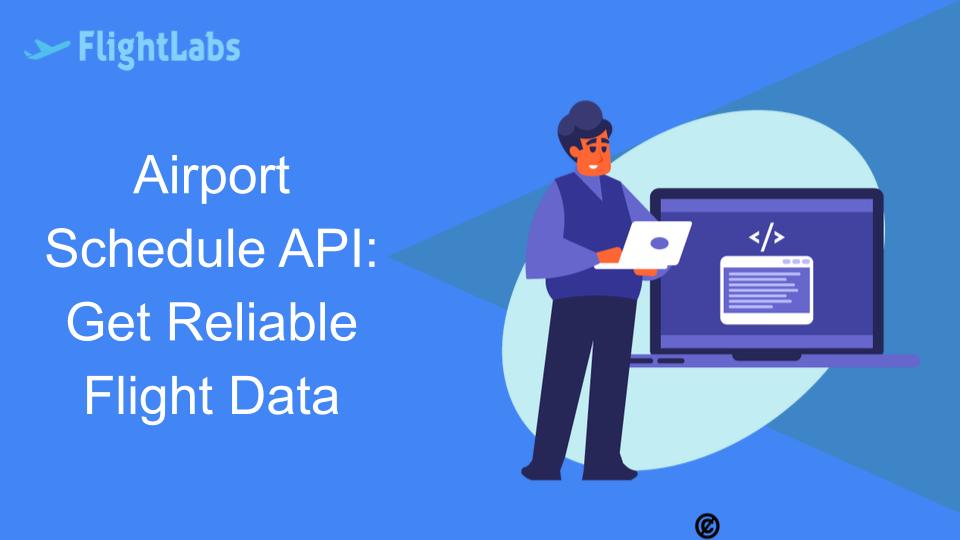Airport Schedule API: Get Reliable Flight Data

The Airport Schedule API is a sophisticated tool designed to provide real-time flight data to aviation industry stakeholders. In today's dynamic air travel landscape, having access to reliable flight data is crucial for ensuring smooth operations and passenger satisfaction. Airlines, airports, and travel agencies rely on the accuracy and timeliness of flight information provided by such APIs to manage schedules efficiently and deliver a seamless travel experience.
Benefits of Using Airport Schedule API:
The Airport Schedule API offers real-time flight information and comprehensive coverage of flight data, providing accurate data for decision-making in the aviation industry. This leads to enhanced operational efficiency for airlines, optimizing their schedules and resources. With features like the air flight status tracker API and aircraft data API, it ensures a seamless experience for managing flights and improving overall performance.

Key Features of Airport Schedule API: FlightLabs
The FlightLabs offers access to airport schedules in real-time, allowing for integration with existing systems. Its customization options cater to specific needs, ensuring scalability and future-proofing of operations. With features like air flight status tracker API and airplane data API, it provides a robust solution for managing flight information efficiently.
Use Cases of FlightLabs:
The FlightLabs serves various use cases across the aviation industry. Airlines and airport operations rely on it for efficient flight scheduling and management. Travel agencies and booking platforms leverage its real-time data for accurate booking information. Moreover, aviation enthusiasts and researchers find valuable insights and historical data through this API for in-depth analysis and study.
Comparison with Other Flight Data APIs:
When comparing the FlightLabs with other flight data APIs, several factors come into play. Firstly, its performance and reliability stand out, ensuring seamless data retrieval and updates. Secondly, its data accuracy and coverage are comprehensive, providing detailed insights into flight information. Lastly, its pricing and affordability make it a cost-effective choice for businesses and developers seeking top-notch flight data solutions.
For developers looking to implement the FlightLabs, here's a guide to streamline the process:
API Documentation and Resources: Begin by thoroughly reviewing the API documentation and available resources to understand the functionalities and endpoints.
Integration Steps for Developers: Follow the integration steps outlined in the documentation to seamlessly integrate the API into your application or system.
Best Practices for Optimizing Data Usage: Implement best practices for optimizing data usage, such as caching frequently accessed data and utilizing batch requests where applicable.

With its user-friendly interface and extensive documentation, FlightLabs makes it easy for developers to get started and leverage its capabilities to create innovative travel applications. FlightLabs provides developers with access to a wealth of endpoints, including flight tracking, schedule information, airport details, and more. With support for both RESTful and GraphQL interfaces, developers have the flexibility to choose the integration method that best suits their requirements.
The future trends in FlightLabs are exciting and transformative:
AI and Machine Learning Applications: The integration of AI and machine learning algorithms in flight data analysis is revolutionizing decision-making processes.
IoT and Real-Time Data Collection: IoT devices are enhancing real-time data collection, providing accurate and up-to-date information for better insights.
Predictive Analytics for Proactive Strategies: Utilizing predictive analytics enables airlines and aviation companies to adopt proactive strategies, optimizing operations and improving customer experiences.